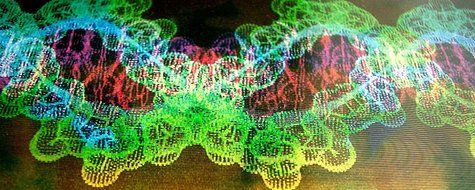Early Onset Form Of Alzheimer’s Disease That Runs In Families Is Linked To Rare Dementia-Causing Mutations [VIDEO]

Alzheimer's disease results from the buildup of aberrantly produced proteins in the brain, causing the death of neurons and mostly resulting in catastrophic and unrecoverable memory loss. Only five to 10 percent of all cases of the disease occur before the age of 65 and are classified as "early onset." Of the cases that present early in life, only 13 percent are tied to the inheritance of genes that are known to be risk factors, called familial early onset Alzheimer's. In 2006, over 26 million people were diagnosed with Alzheimer's, and by 2050, one in 85 people on the planet will have the disease.
It is for this reason that researchers are exploring the familial form of the disease, in order to determine its cause and how it may be related to the vast number of cases which seemingly do not have an inherited cause. Previous work has pinpointed three genes, the amyloid precursor protein and presenilins 1 and 2, which can contain mutations that lead to the early-onset inherited form of the disease. Amyloid precursor protein is a protein that is produced and then cut by enzymes in the body to become amyloid-beta, the plaque forming protein that accumulates and kills brain cells.
A new report out of Massachusetts General Hospital and published today in the journal Molecular Psychiatry sheds more light on the genetic factors that lead to the early, inherited form of Alzheimer's disease. The reseachers found that within 10 families that had familial early onset Alzheimer's run in their family, members all had copy-number variants (CNVs) of genes in their genome. This means that they had parts of their DNA deleted, duplicated and/or rearranged, compared to people who were unaffected. The study is part of the "Alzheimer's Genome Project," which aims to discover genomic mutations and changes that put individuals at higher risk of developing Alzheimer's.
"We found that the Alzheimer's-afflicted members of these families had duplications or deletions in genes with important roles in brain function, while their unaffected siblings had unaltered copies of those genes," said Basavaraj Hooli, Ph.D. from MassGeneral Institute for Neurodegenerative Disease and lead author of the report, in a press statement. "Since our preliminary review of the affected genes has provided strong clues to a range of pathways associated with Alzheimer's disease and other forms of dementia, we believe that further research into the functional effects of these CNVs will provide new insights into Alzheimer's pathogenesis."
Most research on Alzheimer's and most other diseases have focused on small mutations in single nucleotides, or letters, of DNA. Scientists have only recently found that parts of the genome that are supposed to be stable can be "copy and pasted" elsewhere in the genome, deleted or duplicated. These alterations are leading researchers to the conclusion that the basis for some diseases may have a different type of genetic cause than previously thought. "These are the first new early-onset familial Alzheimer's disease gene mutations to be reported since 1995, when we co-discovered the presenilins. As with those original genes, we hope to use the information gained from studies of the new Alzheimer's mutations to guide the development of novel therapies aimed at preventing and treating this devastating disease," said Rudolph Tanzi, Ph.D., who heads the research group that made the finding.
By analyzing repositories of genetic data from the National Institute of Mental Health and the National Cell Repository for Alzheimer's Disease and creating new search algorithms, the scientists found deletions and duplications of genetic material of known Alzheimer's genes in two families, and in ten families, found CNVs that were new and not shared between each family. The copies and deletions were of genes not previously associated with Alzheimer's, but important in neuron function and other forms of dementia.
"Potential clinical application of the findings of this study are not yet clear and require two additional pieces of information: similar studies in larger groups of families with inherited Alzheimer's to establish the prevalence of these CNVs and whether the presence of one ensures development of the disease, and a better understanding of how these variants affect neuronal pathways leading to the early-onset form of Alzheimer's disease," said Hooli.
Tanzi remarks that with the availability of cheap and ubiquitous whole genome sequencing technology, researchers will be able to identify new and rare mutations that cause human disease. He speculates that future tests will not be diagnostic in nature, but will detect the disease without relying on behavioral traits, such as memory loss in the case of Alzheimer's. This will in turn allow for earlier interventions and a greater understanding of genetic-based diseases for better treatments and cures.
Source: Hooli B, Kovacs-Vajna Z, Mullin K, et al. Rare autosomal copy number variations in early-onset familial Alzheimer's disease. Molecular Psychiatry. 2013.



























